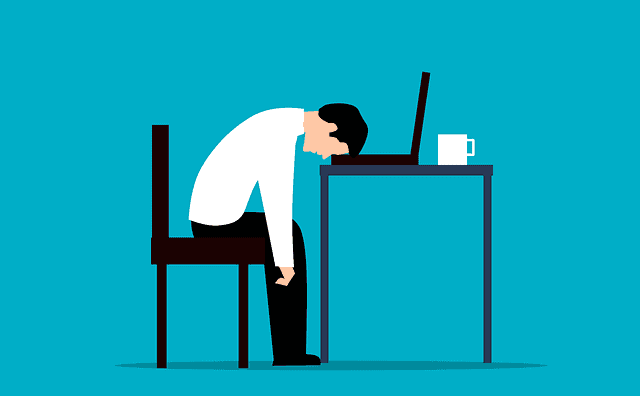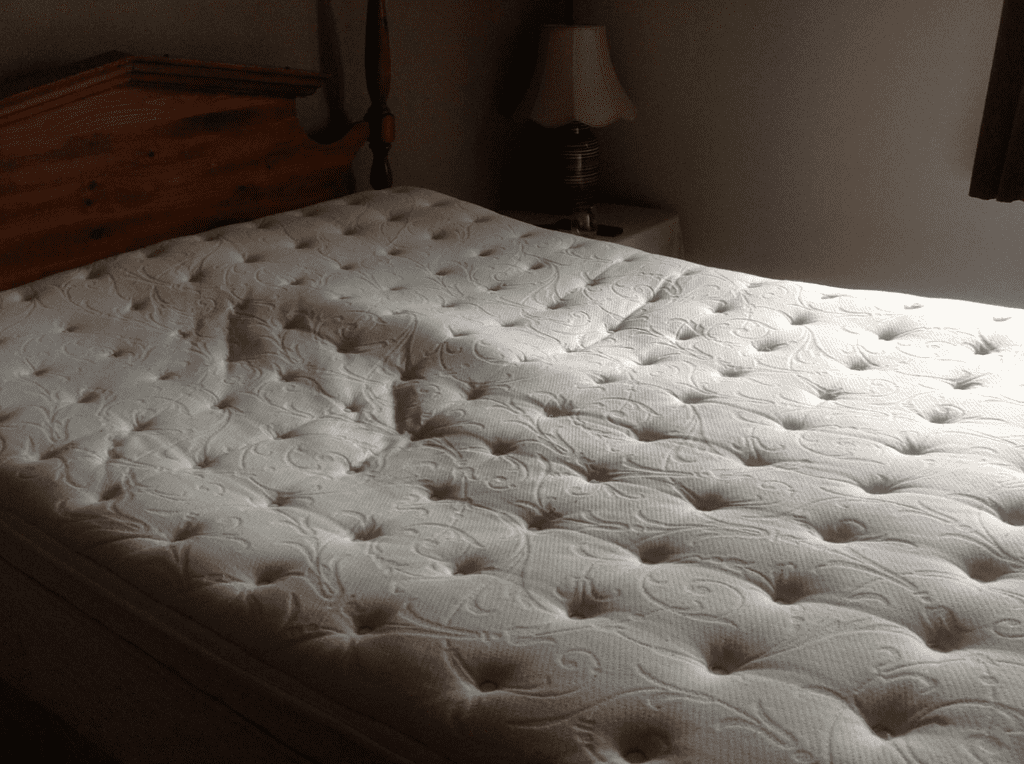How Does Stress Impact Sleep?
Good living standards are one of the goals of 21st-century fast-growing economies. The many activities we enrol into, whether education, career or recreational, exert pressure on our mental well-being, affecting our cognitive abilities. Despite our efforts to eliminate or reduce this pressure, there remains a level of stress that cannot be stopped. This pressure on our mental health affects how the body responds to various normal body functions. Sleep is rest that everyone requires so that the mind and body recharge.
The amount and quality of sleep we get affect how:
- We perform our daily activities
- We interact with one another
- We make decisions
- We behave
- Attention span
All the above reflects how we live and goes hand in hand with our sleep quality. Therefore, the pressure exerted on our mental health following engagement in various activities determines our quality of rest. In addition, such pressure stimulates the release of hormonal chemicals that affect sleep cycles.
Why Is Sleep Essential
Sleep is a body function that promotes brain recharging and gives rest to the conscious mind. Our body requires consistent recharging and general rest to carry out our daily activities. The conscious mind constantly works during the day and may get exhausted from high thinking capacity when we engage in daily programs. It does not necessarily mean that only work calls for a thought process, but the conscious mind becomes engaged whenever we are awake.
Sleep is essential in ensuring that:
- We make the right judgments
- We maintain a positive mood
- We let the memory work at its best
Enough sleep promotes a healthy and happy life. On the other hand, lack of sleep is associated with mental health problems, lifestyle conditions such as hypertension, diabetes, stroke, heart disease and obesity and various health risks such as reckless driving. Therefore, you must get enough sleep every night.
What Is the Burden of Stress
Stress is unavoidable. It can be caused by various unhealthy interactions we encounter:
- Workplace stress, such as long working hours
- Family struggles may lead to separation and arguments between family members
- Harsh academic institutions for children
- Unfulfilled promises and goals
- Lack of employment
Stress can either reduce, increase or hinder body processes. This pressure that exists in our minds causes changes in how our bodies function. For example, stress can cause a lack of sleep. People with insomnia are characterised by symptoms such as lying awake for long hours without falling asleep. Stress introduces negative energy in our bodies, and we tend to become moody and uninterested in activities. It also increases the likelihood of developing other mental health disorders like anxiety and depression.
What Is the Link Between Stress and Sleep
Stress causes changes in the nervous system. Sleep is vital in promoting cognitive processes and functioning. It boosts academic performance and concentration levels. Moreover, lack of sleep can elevate stress levels hence establishing the link. Sleep ensures mental and physical wellness, and due to the unavoidable pressure we get from our day-to-day life, general health is affected, our mental health mainly. Therefore, stress affects both your sleep quality and the time you spend sleeping.
Additionally, one stress factor that has been associated with lack of sleep is long working hours. The long hours at work do not maintain the required balance of work and rest. This leads to low performance at work since their minds do not get enough rest necessary for sound decision-making and directed attention to their activity. In the UK, reports show that most workers spend a lot of time at the workplace and suffer from a lack of sleep. According to research from the Rand Corporation, poor sleeping habits cost the UK economy as much as £40bn a year, roughly 200,000 working days a year because of insomnia and poor sleep.
Why does stress affect sleep
Various forms of stress release chemicals that trigger fight and flight responses. This reflex is meant to keep you awake in case of impending danger. It makes you stay alert because the body thinks something may happen, so it must be ready. In addition, these chemicals cause inflammatory responses.
Sometimes, you are sure that you are not stressed, but stress exists to some particular level, and personal factors affect how our bodies respond to such situations. Inflammatory responses can be swelling, muscle tension, allergic reactions, or premature ageing. An example is the cortisol chemical that inhibits the hormone production responsible for sleep called melatonin. As a consequence, you tend to stay awake most of the night.
What Are the Specific Ways in Which Stress Impacts Sleep
Stress causes adverse effects on patterns of sleep. Stress leads to midnight night awakening, uncomfortable sleep, and waking up between sleep cycles. Stress affects the amount of sleep we get and the quality. The quantity and quality of sleep are essential for general health and well-being. In most cases, stress causes increased thought processes, headaches, heart palpitations, and restlessness, affecting sleep patterns. Some reactions also occur when you are stressed and cause body responses that disturb and interrupt continuous sleep.
The following are ways in which stress affects sleep:
- Stress grinds your teeth – This is referred to as Bruxism. It is caused by stress and tension during bedtime. Tense jaw muscles characterise it; hence you grind your teeth during sleep. The strained jaw muscles may trigger pain sensations affecting your ears and head. The tight muscles can lead to teeth wearing, causing total damage. This process involves sleep patterns; you can wake up early and feel tired after sleep. Continuous sleep is prone to interruptions since your whole body feels tense.
- Stress causes aching of muscles and pain – When stressed, the neck and shoulder muscles become tense, bringing about persistent headaches and pain flushes. Stress obstructs magnesium and calcium absorption, minerals that promote healthy joints and muscles. The stress hormone cortisol stimulates muscle and joint inflammation, affecting sleep quality and amounts. Prolonged stress may lead to severe menstrual pains and depletion of bone densities. These symptoms alter the regular sleep cycles, and you often cannot catch any sleep. Staying awake most of the night becomes your nightmare, and your only wish is to close your eyes and quickly hide from the pain.
- Stress elevates body temperature – When your body temperature increases, blood sugar levels, blood pressure, and heart rate also boost; this causes excessive sweating at night and increases blood flow which may cause inflammation and reddening since capillaries are damaged. In addition, increased body temperature denies you the deep sleep required to wake up fully rested.
- Stress causes allergic reactions – Some hormones, such as histamine, cause allergic reactions when you are stressed. As a result, allergenic symptoms worsen at night, and therefore, you lack sleep. Such symptoms include sneezing and coughing, sometimes severe and often starting at night. Other symptoms, such as itchy and irritated skin, intensify inflammation. Hence you are unable to sleep.
- Stress obstructs digestion – Digestion problems such as constipation, diarrhoea and bloating lead to a lack of sleep. Due to the fight and flight reflex, digestion may be slowed down, resulting in constipation and may then speed up, leading to diarrhoea. Stress produces inflammatory hormones that lead to a leaking gastrointestinal duct. When this happens, your night is disturbed, your gut is upset, and you must stay awake until you feel better. Cases of diarrhoea are sometimes so intense that you have to stay near the washroom. That means avoiding sleeping by all means. Instead of sleeping, you look for working alternatives that comfort your gut.
What is the Role of a Good Mattress in Promoting Sleep
Studies have proven that comfortable mattresses improve the amount and quality of sleep you get every night. Medium-firm mattresses reduce cases of worrying, tension, and headaches. These mattresses help those who are nervous, irritable, and with continuous thought processes to relax and focus on getting enough sleep. In addition, a comfortable mattress such as memory foam or pocket spring can decrease stress levels due to the quality of sleep you get.
Can you be allergic to your mattress
Some microscopic organisms, such as buggers, stay on beds as they primarily feed on cells of your skin. You may be allergic to these kinds of organisms especially asthma patients. Your mattress, therefore, needs a cover that will help keep it from travelling into your mattress and sheets. The best choice for those suffering from allergies is a hypoallergenic mattress. This way, allergic responses are altered, and you get better sleep quality.
When to change your mattress
Your bad mattress may be the cause of disrupted sleep cycles. An old mattress makes you turn continuously, disrupting your chances of falling asleep quickly. When your mattress contains holes, it is time to purchase a new one. This will prevent buggers that can cause allergic reactions that disrupt sleep cycles. If you feel uncomfortable, your mattress may be the reason; therefore, purchasing a new one promotes your sleep and reduces stress. Top of Form
What are the benefits of a good mattress
- It promotes back health. A good mattress gives you the support to make you feel comfortable when you sleep. The right mattress eliminates cases of back pain. Back pain is mainly related to uncomfortable beds that strain your back. The focus is to detect when your mattress is old and buy a new one to eliminate back pain.
- A good mattress provides a good sleeping posture. You should know what makes you feel good and then go for that, hence respecting your preferences. Your mattress should reinforce the poor posture you take when you are asleep. You have a right to have that comfortable mattress so as not to experience interrupted sleep, resulting in tiredness after bedtime.
- Your choices should direct you to a mattress:
- It is made of high-quality products and is durable for your desired time frame. That gives you the support you need and fulfils your comfort level
- You can try to ensure it gives you the support you need before purchasing it
- A low-motion transfer mattress
A good mattress reduces the cases of tensed muscles, hence, better sleep. In addition, a suitable mattress gives you maximum comfort that supports your whole body posture. Therefore, better sleep comes with dealing with stress that impacts sleep and making good choices on mattress types to purchase.
Bottom line
Stress is part of life. It affects both the young and the old. Stress arises from workplace pressures, interactions that may lead to dissatisfaction and daily encounters. In addition, stress leads to the release of hormones that affect sleep cycles.
Sleep is vital to every human being. Lack of enough sleep is associated with reduced interaction rates, poor workplace performance, and disrupted concentration. Hence, one cannot keep attention in activities and lack coordination in the cognitive and memory processes. In addition, lack of enough sleep leads to habits that are inappropriate and low mood. As a result, you cannot make the right decisions and often show risky behaviour. Therefore, knowing how stress impacts sleep will ensure you employ stress reduction programs and alternatives to promote better sleep, boosting your general health.



